

Recently the Frying Pan ran an interview with DeMaurice Smith, the executive director of the NFL players’ association, in which he responded to people who thought the 2011 players dispute with owners was a “fight between millionaires and billionaires.”
Smith pointed out that a lot of people’s livelihoods depend on professional sports, and lockouts hurt them even more than they hurt players. But there’s a bigger question raised by this issue – and one that highlights a conflict deep at the heart of American cultural beliefs. Who has a moral right (not the legal right or the logistical need, but the moral right) to the proceeds of an enterprise — the people who do the work or the people who front the money? We say we value hard work, but do we really value it more than the right of people who already have money to make even more?
» Read more about: Game On: Leveling Pro Sports’ Playing Fields »


Even before Santa Monica became infamous for the atheists taking over most of the holiday kiosks at Palisades Park, I thought the season was bigger than merely Christmas. After all, December 25 marked the turning of the sun for the Romans – what they called Saturnalia. The whole season of festivals hinges on Solstice, not a baby’s birth – although a pregnant girl giving birth in a stable makes for a great story.
So my wife Susan and I think the season begins with Halloween and ends with what Americans call Ground Hog Day, an entire quarter of the calendar in which the daylight shortens and the nights lengthen in the northern hemisphere. The experience was so traumatic for our forbearers that they clustered a bunch of holy days around it.
Halloween, or Samhain in the ancient calendar, marked the narrowing of the veil between the world of light and the world of darkness – so the spirits could slip across more easily.


Craigslist founder Craig Newmark recently sent out a call for bloggers to express their hopes for 2012. On December 26 Newmark announced on his own blog that the Frying Pan News’ Jim Lair Beard was included in a group of 16 writers whose ideas were especially noteworthy. (16 People and Organizations Changing the World in 2012.)
Jim’s post, Change Will Not Be Downloaded, spoke of the need for progressives to physically get out into the streets and to knock on doors to advance change in the coming year. He’s in good company on Newmark’s list – his 15 colleagues include MoveOn co-founder Joan Blades, Surfrider Foundation CEO Jim Moriarity and David B. Crowley, President and Founder of SCI Social Capital Inc.
You can read Jim’s latest post, Homicide and Hospitality, in today’s Frying Pan. A restaurant server at the Andaz Hyatt hotel in West Hollywood,
» Read more about: Frying Pan News’ Jim Beard Recognized for Blog »


Southern California’s Economy was spared a beating when 62,000 grocery employees belonging to the United Food and Commercial Workers union won a fair three-year contract from three major supermarket chains without having to go on strike.
Nothing said Politics more than the Occupy movement– which quickly set up camp in Los Angeles around City Hall. Photojournalist Tony Zinnanti captured the hope and youth of this campaign with a timeless image of a mother and child.
 Another year, another oil spill assaulting the Environment. This time it was Exxon Mobil’s turn to dump a little crude — into the Yellowstone River.
Another year, another oil spill assaulting the Environment. This time it was Exxon Mobil’s turn to dump a little crude — into the Yellowstone River.


Should we chuckle or cry whenever the American conversation slides back into rumor and paranoid nightmare? Below are five of this year’s more unforgettable fantasies, debunked by America’s leading myth-busters, Snopes.com.
1. Michelle Obama is pregnant — and White House spokesman Robert Gibbs was fired for discussing this!
2. Liberal billionaire George Soros is buying up U.S. gun makers – in order to shut them down.
3. Department of Energy $737 million loan to a solar-energy project will only create 45 jobs – and the company’s run by a Pelosi!
4. Barack Obama uses a Social Security number belonging to a deceased Hawaiian born in 1890.
5. NBC edited out a reference to Christ in an interview with family members of deceased Navy SEAL.


What a drag—I have recently been worried about the memory loss I have sort of grown used to over the last few years. I’m not afraid of Alzheimer’s—and I don’t feel unique. Fortunately I get a lot of support from my “fragmented” younger and older friends who assure me that I’m not the only one who is experiencing the well-known list of “senior moments,” including:
“What did I walk into this room to get?”
“ Where are my glasses and keys?”
“I drove right past the post office I always go to!”
“I can’t remember names.”
You probably have your own list.
But when you are almost 85 years old—and have finally chosen to admit it to yourself — it takes on another dimension. How am I supposed to proceed to make life creative and fulfilling in the ways I know best, before I fully accept this new stage?


Here is a shorter — and more modern — rendering of the Christmas poem by Clement Clarke Moore (1823).
‘Twas the night before Christmas, when all through L.A.
not a good job was to be found, not even for low pay.
The job apps were filled out, the interviews complete,
in hopes that all would keep shoes on their feet.
The children were nestled all snug in their beds,
while visions of Xboxes danced in their heads.
But we were barely paying the mortgage, and clean out of cash
so sadly, this Christmas, there would be no big bash.
When into my mind came a brilliant idea.
What if there were a million good union jobs here?
It’s not so outlandish, it’s not so remote —
I jumped out of bed and put on my coat.
The moon shown down on the city’s bright lights
as I drove my old car west toward Angelino Heights.


I could be a hopeless optimist, but it seems that more people are thinking deeply about the kinds of lives they want to lead as life has become harder in our country. Recently I was invited to speak to students in a Nonprofit Leadership graduate program on “How to Build a Career Based on Social Justice Principles.” It gave me a chance to think about what has worked for me, and these are the guidelines I shared that evening:
1. Do the work you think needs to be done — whether you get paid for it or not. Our life “careers” are made up of the work we do for pay as well as what we choose to do in our personal time. Instead of dreaming of getting paid to do the work you truly believe in, go ahead and do it now as a volunteer. All the important justice movements of our times – civil rights,
» Read more about: Your Choice: The Just Life – Or Just Life »


Once again the holidays are upon us and, like everyone else, I’m running around, from one party to the next. It’s a chance to catch up with folks I haven’t seen in ages or have been meaning to see for ages. It’s also a time of numerous fundraisers. Which means I don’t have to shop.
Really? Aren’t we all supposed to be consuming to keep the economy humming? Or at least idling? So they say. I was supposed to go out and shop after 9-11 too. I didn’t take the capitalists’ advice then and I’m not taking it now. Not totally, that is. Because I do spend a ton of money during the holidays. But I spend most of my hard-earned cash on drinks and food, which I would argue feeds the local economy, and that’s more important to me in our current tough times.


Part Two of a two-part interview
I spoke with DeMaurice Smith, executive director of the NFL Players Association, before he and the association were given LAANE’s City of Justice Award at the Beverly Hilton Hotel on December 8. The first half of the interview ran yesterday in the Frying Pan.
Caroline O’Connor: Do you feel that the NFL owners had an agenda to bust the players’ union?
DeMaurice Smith: I made it perfectly clear to our players that the existence of our union was what was at stake. I believed that the day I took the job. It was important for our players to understand that this was not just a contract negotiation.
CO: It appears that there was a lot of real solidarity among the star players and all of the players. How was that achieved?


Black Friday may be a distant memory already, but as we head deeper into the holiday shopping season, there are some important lessons to be learned about the psychology of marketing and the real cost of bargain hunting.
Here’s a cautionary tale from my own life: One year on the day after Thanksgiving, my uncle, a tech geek, woke my brother and me up at an ungodly hour to get to Fry’s Electronics by 5 a.m. The doors opened at 7 a.m. Despite us ending dinner early, waking up before the crack of dawn and standing around in the dark for hours, most of the deals had already been whisked off the shelves by the time we got in the door. We wandered around a store so crowded it bordered on unsafe before finally buying some gadgets just to feel like we hadn’t wasted our time.
This year, as the recession continues,
» Read more about: Black Friday and the Psychology of Scarcity »
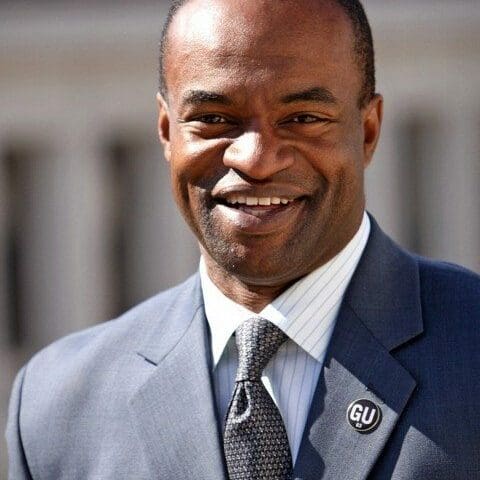

Part One of a two-part interview
I stole DeMaurice Smith. That is, I grabbed 20 minutes with the executive director of the NFL Players Association, between poses in front of the step-and-repeat and shaking hands with enthusiastic dinner guests. Smith and the association were honorees at the December 8, LAANE City of Justice Awards Dinner, along with Culture Clash and the main guest of honor, Madeline Janis, at the Beverly Hilton. Later, Smith gave a rousing speech to a packed ballroom without looking at a single note. Just sayin’.
I wanted to know more about the guy I saw on TV during the first half of 2011 who brought all of the football players into a huddle — not to call out plays on the field, but to talk organizing strategy and give pep talks on contract negotiations.
» Read more about: NFL’s DeMaurice Smith on Everyday Work and Ordinary People »
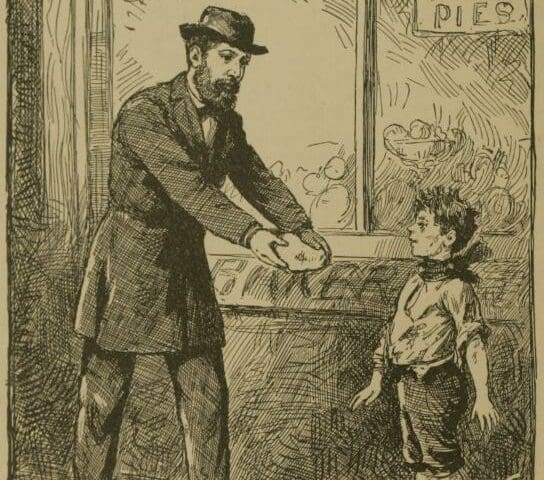
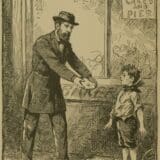
T’is the season of the full mailbox. Every day when I pick up our mail, the box is stuffed with requests for donations. My wife Susan and I get them from everyone – from CARE to the Salvation Army to cancer research to the Red Cross. We get them just like you do because this is the time of year when people think about giving to others – and tax deductions only count if you make that donation before December 31.
Poring over some demographic materials a few years back, I realized that Susan and I are among the top three percent of givers in Southern California. I couldn’t believe my eyes. How could a low-paid Methodist minister give away enough money each year to be in the upper echelon of generosity? Especially with all the wealth in Los Angeles.
Turns out, it wasn’t hard at all. We practice the ancient religious tradition of tithing – we give away 10% of our income.


People often get pretty touchy this time of year. Maybe it’s having to go to the mall. Maybe it’s the stress of dealing with family. Maybe it’s thinking about all those broken resolutions from a year ago. But whatever the reason, Americans tend to lash out at each other more than usual.
A perennial complaint has to do with the so-called “War on Christmas.” Showing that my own people don’t have a monopoly on a persecution complex, some Christian groups are very quick to declare themselves under attack. And to be sure, our on-again-off-again national flirtation with inclusivity does lead many people to say things like “Happy Holidays.” (I know, how hateful!)
Many of these groups and individuals base their indignation on the “fact” that this is a Christian nation. Of course, we are not a Christian nation, though the Judeo-Christian tradition informed many of our earliest values and laws.
» Read more about: Singing the First Amendment Christmastime Blues »
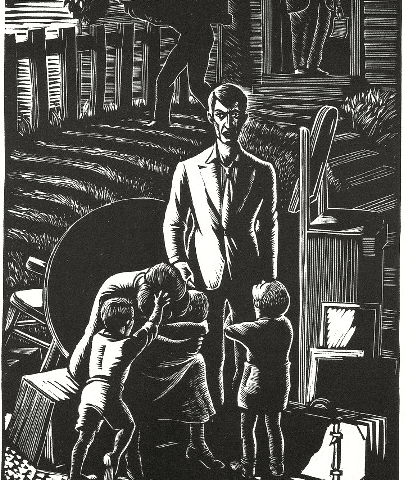
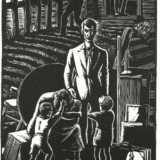
Criticized for focusing more on what it is against than what it is for, the Occupy Wall Street movement has now found an organizing issue it can embrace. Perhaps because so many Occupiers have recently been evicted from their encampments in cities across the country, they have found common cause with the growing number of American families facing foreclosure. Last week, after the Los Angeles Police Department evicted Occupy LA from the park outside City Hall, Mario Brito, one of the group’s lead organizers, said that the movement’s activists would begin to set up occupations at the homes and country clubs of major bank executives reside and to work with other groups to protest the growing wave of foreclosures.
More and more homeowners facing wrongful foreclosure evictions are taking a bold stand by resisting banks’ unfair actions. They are deciding to stay in their homes and fight. When the banks or sheriffs come knocking on their doors,
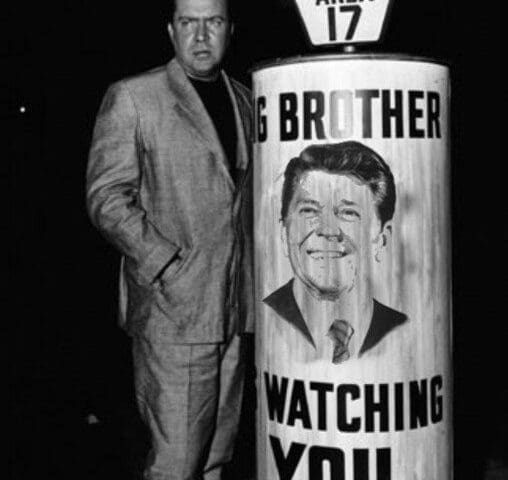
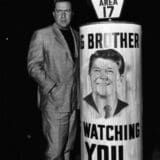
Frank Luntz, the Republican pollster and messaging guru, gave a recent talk where he described his 10 biggest Do’s and Dont’s for talking about the economy in the post-Occupy Wall Street environment. It’s worth reviewing these 10 points and reflecting on what Luntz’s insights on behalf of the 1% tell us about how we can successfully talk about the issues we care about, on behalf of the 99%.
The main thing – the frightening thing – is that Luntz has a history of actually succeeding at changing the debate in America. Why? Because Republicans like Luntz are masters of the reductive fear phrase and it comes out all over his suggestions. These are the guys, after all, who turned inheritance duties into “death taxes” and from that, advisory health committees into “death panels.” But they’re clearly on the defensive here – for the time being.
Luntz begins his talk to the Republican base by admitting,
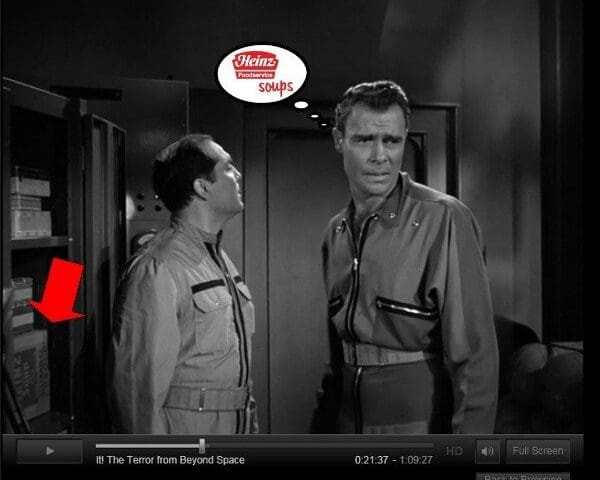
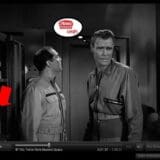
The other day I was streaming It!, an old science fiction film, and saw something odd on my computer screen. There, in the storage hold of the rocket ship returning from Mars, sat a crate of Heinz soup cans. The box was barely visible – blurry and jammed in the corner of a locker, next to all the cartons of cigarettes the crew members were smoking on their trip back to Earth. Still, we’re trained to notice product logos and I couldn’t miss Heinz’s distinctive lettering on its case of Creole Gumbo.
I was shocked that Heinz had even sold soup in 1958, when the film was made – let alone that they would figure in the story’s Tomorrowland of 1973. I did what any futuristic earthling would and Googled “heinz soup.” Sure enough, the company did sell a supermarket line in the 1950s, but eventually got out of the business except for its current Heinz Foodservice trade of selling tub-sized containers of Tomato Florentine to institutional clients.


Recently, we noted that our friends at American Rights at Work called for a boycott of Amazon.com. As friend-of-this-blog and renaissance-man-about-town Joshua Joy Kamensky notes, however, we need to be more careful with the B-word.
Boycotts are ubiquitous. Progressives boycott Wal-Mart because of its anti-worker practices and its impact on local economies. Conservatives boycott stores that say “Happy Holidays” instead of “Merry Christmas.” Los Angeles boycotts (kinda sorta) the state of Arizona over the anti-immigrant SB1070. Animal rights activists boycott Nestea for animal testing. Anti-Islamists boycott halal turkeys. Every time some politician says something idiotic or offensive, people dig up the donor list to that politician, and boycott the corporate sponsors.
But sometimes things get confusing. Are we boycotting Home Depot to get it to stop using old-growth redwoods,


It wouldn’t be Christmas without basketball. So goes the thinking in the NBA, as the players and owners reached agreement over the holiday weekend on a new six-year deal that will give us a shortened, 66-game season and the all-important marquee games on Christmas Day.
For all the discussion of the issues the past few months, writers have been quick to move from analysis of Basketball Related Income to breaking down the 2011 (barely)-2012 season. In part, that’s because all the details aren’t in, but here are a few links for your reading pleasure.
First up is a memo from National Basketball Players Association head Billy Hunter explaining the deal. Take the cheerleading with a grain of salt, of course, since Hunter’s been under fire and needs to tell players what they won after giving up some paychecks. (This is what everyone says,
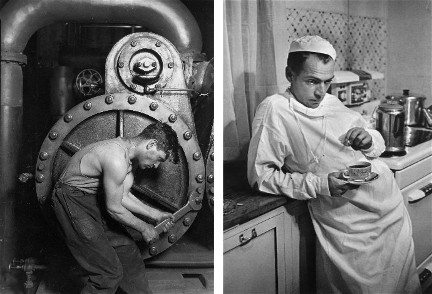

“It’s not brain surgery.”
My cousin’s husband, Keith, says this to me a lot. He says it whenever he’s giving me complicated instructions on how to tackle some grueling home-repair process, usually one involving multiple steps and materials and equipment I’ve never heard of. And at that point I always picture myself standing over some inert patient on a gurney, bone saw in hand, wondering if I should go ahead and cut into their skull or wait for a trained professional, because as far as I’m concerned what he’s describing might as well be brain surgery, it sounds that difficult.
But for Keith it’s really not difficult. He’s done this kind of thing for years. He worked in residential construction for more than a decade and has remodeled every house he’s ever owned, generally more than once. He takes his own expertise and know-how completely for granted,